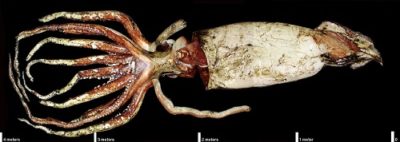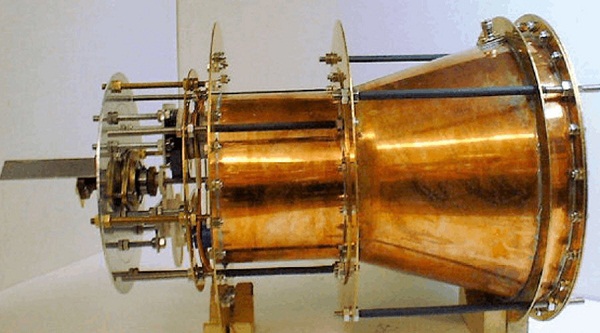
On Monday, a six-meter giant squid, one of the most elusive and mysterious creatures of the oceans, was caught accidentally off the coast off Co Kerry, about 190 km off Dingle.
The Cú na Mara fishing vessel was trawling for prawns on the Porcupine Basin when the giant squid was accidentally netted by it. The skipper of Cú na Mara vessel is fisherman Pete Flannery, whose father Michael Flannery had also caught two giant squids off the Kerry coast in 1995.
Giant squids have rarely been spotted in in Ireland. Only a few specimens have ever been recorded in the past and almost all of them occurred near Dingle. According to Kevin Flannery, a marine biologist, this giant squid was only the fifth specimen to be recorded in Ireland since 1673. In Ireland, the first giant squid was brought ashore in 1673. In 1995, another giant squid was caught off Dingle.
The dead squid has been brought to Dingle’s Oceanworld Aquarium. It will later be sent to the Natural History Museum.
The Dingle Oceanworld Aquarium was founded by marine biologist Kevin Flannery. According to Kevin Flannery, three giant squids were caught by trawlers in 1995, and one that was caught on Monday was the first since then.
“There is a big drop-off at Porcupine where the edge of the continental shelf is; giant squid live very deep so this one probably wandered up the shelf and was caught,” Mr Flannery said.
“The total records from Ireland show there was one caught west of the Aran Islands and two in Kerry in 1995,” Mr Flannery said.
“Records show the first sighting of a giant squid was on October 3, 1673. The next wasn’t until 1875 in Inisbofin and then there were three in 1995.”
“The giant squid is the one the sperm whales have to dive deep down for, they go extremely deep, down 40 or 50 feet,” Mr Flannery added.
“They’re so elusive, hardly anyone has ever seen one. National Geographic has only filmed them recently for the first time ever off the coast of New Zealand.”
“If found inside in a net, they were known to grab sailors and spread their tentacles around them.
“They will cut and they’ll bore into you, once they grab you,” he said.
“Obviously, this one, which is male, came up to feed and was chasing fish when it got caught in the net,” Mr Flannery said.


